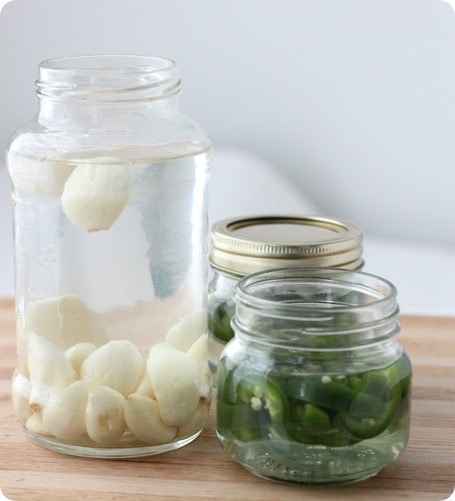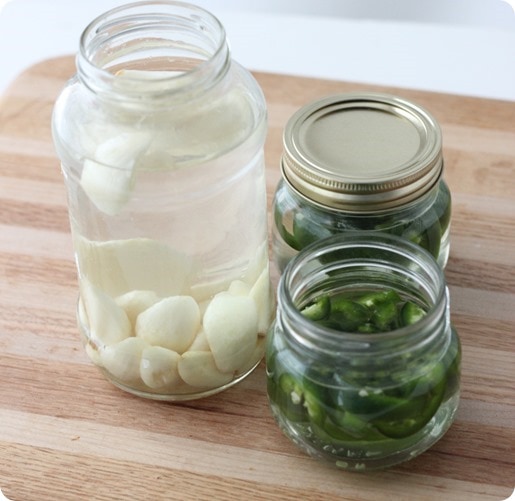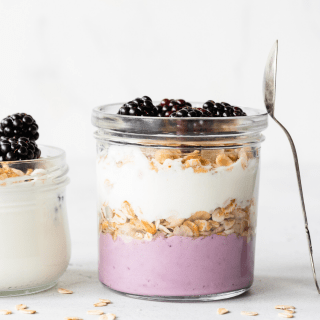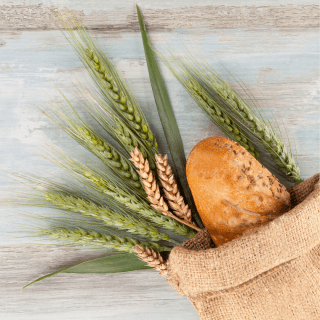This is a guest post from my friend and fellow dietitian Meme Inge all about the health benefits of fermented foods. Read on for more about why fermented foods are so good for you, plus different types of fermented foods you can enjoy!
Why Eat Fermented Foods?
Hi there fANNEtastic food readers!! I’m so happy to be here today! I spend most of my days in my tiny, outdated kitchen making Southern recipes just a little bit healthier on my blog, Living Well Kitchen.
My goal in life is to encourage people to eat more produce because fruits and veggies are awesome! And you know what makes vegetables and fruit even better? When you ferment them.
Wait… don’t turn your nose up to fermented foods just yet. Open up your mind and get excited because I’m here to share some fun facts about fermented foods with y’all. Yep, fermented foods are fun and I’m here to tell you why.
As a registered dietitian nutritionist, I’ve been asked on multiple occasions about eating fermented foods, and I didn’t feel equipped to give a good enough answer.
So I pulled out the old college textbooks and started perusing articles on PubMed. {Science nerd alert}
While I have done a post about fermented foods before, I didn’t do much research (shame on me!) on the benefits of fermented foods for the post. I just made an easy recipe for a fermented food, kimchi, and called it a day.
And then I let my kimchi just hangout in the fridge. For like 6 months. I do not recommend this, friends. Especially when you throw it away and the jar that has unknowingly broken spills its contents onto your carpeted den floor {bless my heart}.
Unfortunately, I missed out on all the wonderful benefits of my fermented kimchi, but you don’t have to make that mistake!
So go ahead, grab a cup of kombucha, and join me while I share why fermented foods should be a part of your life.
What is Fermentation?
Fermentation is the breakdown of carbohydrates and proteins by bacteria. It is an anaerobic process, meaning it occurs without oxygen.
Lactic acid fermentation, or lacto-fermentation, is the fermentation process that fruits and vegetables undergo.
There are multiple strains of Lactobacillus bacteria present on the surface of plants that cause the breakdown of the fruits and vegetables. The Lactobacillus bacteria convert the plant carbohydrates {sugars} into lactic acid.
Not only does lactic acid encourage beneficial bacterial growth in your intestine, it is also a natural preservative, keeping the food from spoiling.
Here’s how it goes: The bacteria present on the plant break down the plant sugars in an oxygen-free environment (a salty solution in a sealed container), while the salt helps both inhibit the growth of harmful bacteria and encourage the growth of beneficial bacteria.
In just a few days to weeks, you have naturally preserved vegetables or fruit that now provide you with tons of naturally occurring bacteria (plus all the other great benefits already present in produce)! Those naturally occurring bacteria are typically referred to as probiotics.
(For more on probiotics, see this post of Anne’s: what are prebiotics and probiotics?)
Fermented foods go way back. People have been fermenting their foods for centuries and most cultures have their own version of a fermented food that is a staple in their diet.
Fermented foods are like that vintage scarf you find in your grandmother’s closet that goes with everything and encourages people to give you tons of compliments on your fashion sense.
…Except making your own fermented foods won’t smell like moth balls, and you don’t need a stylish grandmother to jump on the fermented foods bandwagon.
Examples of Fermented Foods
There are tons of delicious fermented foods that you can add to your daily diet:
- yogurt and kefir ~ fermented dairy products that help aid in digestion
- kimchi and sauerkraut ~ lacto-fermented cabbage that has healthy bacteria and can boost anti-cancer properties as well {thanks to the cabbage}
- kombucha ~ an invigorating fizzy drink made from tea that is both sweet and sour. It can be an acquired taste, as it smells slightly of vinegar, but it is full of beneficial microorganisms
- tempeh ~ fermented soy beans that are easier to digest and higher in protein
- pickles ~ not just a condiment for your sandwich, lacto-fermented cucumbers (vs. regular pickles, which are heat treated, killing that good bacteria) are an easily accessible way to get in your fermented veggies. Just make sure to avoid the store-bought heat-treated pickles with added preservatives/sugar. If going for store-bought, look for those that say they are cold pickled, which means the good bacteria is still present!
- miso ~ a seasoning made from fermented soybeans and fungus that helps improve digestion
Health Benefits
Fermented foods have loads of health benefits. Here are some of them:
- digestive benefits: fermented foods are enzyme-rich (enzymes help break down food in your body), so they are easier to digest and aid in the digestion of other foods
- synthesizing and enhancing the bioavailability of nutrients: your body is better able to absorb the powerful nutrients in your food
- improved gastrointestinal function and health: less tummy troubles
- anti-inflammatory benefits: helps regulate inflammation in the gut and boosts anti-inflammatory cytokines
- anti-hypertensive effects: ingestion of probiotics and their fermented food counterparts have been linked to reductions in blood pressure
- enhanced immune system: beneficial bacteria help your body fight infections. The immune system is influenced by the amount of bacteria present in it, and lactic acid bacteria, present in fermented foods, encourages beneficial bacterial growth. (Read more about immunity in this post: 10 Foods that Can Boost Your Immune System)
- lower risk of certain cancers
Not only are all those benefits fab, but there can also be issues when you deprive your body of fermented foods.
Deprivation may result in lowered immune response that negatively affects your body’s ability to fight infections, as well as the decreased concentration of short chain fatty acids in your body. Some short chain fatty acids have been linked to a reduction in the risk of developing gastrointestinal disorders, cancer, and cardiovascular disease.
Much more research needs to be done to determine the mechanisms as well as what strains of bacteria are most beneficial.
But for now, I’ll just go ahead and tell you that I personally include some type of fermented food into my daily diet.
How to Make Your Own Fermented Foods
Now I bet you’re curious to learn how you can start fermenting your own foods to include in your daily diet, right?
Well, it’s a lot easier than one might think; no need to start brewing kombucha in your kitchen. All you need are some veggies, filtered water, salt, and a jar to hold everything.
Here’s a blog post with everything you need to know, including recipes to try: How to Ferment Vegetables.
Thanks for reading, and I hope you learned a little something about fermented foods and their benefits!
How do you include fermented foods in your diet?
Disclaimer: make sure to discuss any dietary changes with your doctor if you have any medical conditions. Homemade fermented foods may not be healthful for everyone. They are safe for the general public, but it’s always a good idea to double check.







